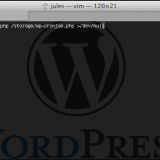The Hackers Guide to Python – Interview with Julien Danjou
The Hackers Guide to Python – Interview with Julien Danjou

Julien published his first book The Hackers Guide to Python and of course i didnt want to miss out on my chance to ask him some questions about his new work, Python and future plans.
So Julien, now you are asked to give me some input to fill up this Post 😉
Interview with Julien Danjou:
What made you decide to write this book?
Julien: While discussing with other Python developers, I realized that many concepts and solutions I was talking them about were things they never heard about or didn’t thing it would be possible to do.
While working on OpenStack (a cloud computing platform written in Python) for 2 years I realized that we were working with a lot great Python hackers, and driving part of the innovation in the Python world.
We built and used a lot of tools to scale our millions of lines of Python code and make it work.
So I decided to compile all the information I had and the experience I gained into a book.
Who exactly should read this book? Which skills and knowledge should people have to read this book?
Julien: Any Python developer that already knows the language basics. It’s not an introduction to Python, the book does not explain the syntax or what a class is – it assumes you already know. I tried to write the book I would have read – and I’ve been doing Python for a few years now.
It covers more advanced topics and tools you want to use to build solid architecture.
How do you handle the Python GlobalInterpreter Lock? Or did it never bothered you? 😉
Julien: I basically don’t, and that’s what the book says. It’s not something you can’t avoid, so just ignore it and don’t try to do multithreading.
There’s other solutions, like using multiprocessing and service-oriented architecture which scales better.
What advantages do you see in Python compared to Node.js and similar?
Julien: The great force of Python is its philosophy of “batteries included” and its large ecosystem of library that have been there for a long time. I consider platform as Node.js and the Javascript language still young.
When it comes down to the language, they both are their pros and cons. I don’t think that either of them is a magic bullet for every situation.
Are you planning to write another book? Maybe about OpenStack?
Julien: Clearly written a book about OpenStack crossed my mind. I think that most people want to read books about how to deploy and operates OpenStack, and that’s not something I could write properly. I do develop OpenStack all day long, but I barely operate it.
However, if you want to develop on OpenStack, reading the Hacker’s Guide to Python can be really helpful.
Are there any new projects on which you engaged?
Julien: Not for now, though I still have a few ideas I would like to try in the next months. I admit that writing a book kept me busy for the last months and prevented me for starting anything else – but hopefully that’ll change!
I thank Julien for his short interview and hope i will hear something more about the future projects!
The Book The Hacker’s Guide to Python is available at http://julien.danjou.info/books/the-hacker-guide-to-python
Paperback Version: The Hackers Guide to Python
___________________________________________________________________________
About Julien Danjou:
Julien Danjou is a great expert in linux system engineering, software development especially python and works as an free software consultant in Paris/France. Julien is developing for interresting free software and open source projects like Debian Linux and is contributing to OpenStack and FreeDesktop.







